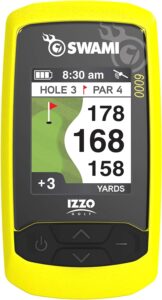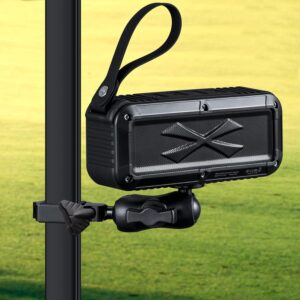Golf carts are increasingly popular beyond golf courses, being used in residential communities, large properties, resorts, and even urban transport. Whether you’re an avid golfer, property manager, or seeking a convenient mode of transport, knowing how much is a golf cart costs is essential. This comprehensive guide covers everything you need to know about golf cart pricing, including types of golf carts, new vs. used options, factors affecting prices, additional costs, where to buy, financing options, and more.
Table of Contents
Types of Golf Cart
Understanding the different types of golf carts available is crucial in determining the right one for your needs and budget.
Electric Golf Carts
- Overview: Powered by rechargeable batteries, electric golf carts are environmentally friendly, quiet, and suitable for short to moderate distances.
- Advantages:
- Low maintenance costs.
- Quiet operation.
- No emissions, making them eco-friendly.
- Disadvantages:
- Limited range per charge.
- Battery replacement costs every few years.
Gas Golf Carts
- Overview: These carts run on gasoline, similar to a small car engine, and offer more power and range.
- Advantages:
- Longer range than electric carts.
- More power, suitable for hilly terrains and heavy loads.
- Disadvantages:
- Higher maintenance costs.
- Noisier and produce emissions.
- Ongoing fuel costs.
Street-Legal Golf Carts
- Overview: Equipped with additional safety features like headlights, turn signals, and seat belts, these carts can be driven on public roads where permitted.
- Advantages:
- Versatile use, can be driven on roads legally.
- Enhanced safety features.
- Disadvantages:
- Higher initial cost.
- Must comply with more regulations.
New vs. Used Golf Carts
Pros and Cons of New Carts for Golf
- Pros:
- Latest technology and features.
- Full warranty coverage.
- Customization options available at purchase.
- Generally longer lifespan and reliability.
- Cons:
- Higher initial cost.
- Depreciation starts immediately after purchase.
Pros and Cons of Used Carts for Golf
- Pros:
- Lower purchase price.
- Immediate availability.
- Potential for good deals if the cart is well-maintained.
- Cons:
- Limited or no warranty.
- Higher risk of maintenance issues.
- Potential hidden problems not visible at purchase.
How Much is a Golf Cart Price Range ?
Electric Golf Carts
- Entry-Level: $4,000 – $7,000
- Basic models with essential features.
- Mid-Range: $7,000 – $12,000
- More features, better build quality, longer battery life.
- High-End: $12,000 – $20,000+
- Premium models with advanced features, better performance, and extended warranties.
- Examples: Club Car Onward, Yamaha Drive2, EZ-GO RXV
Gas Golf Carts
- Entry-Level: $5,000 – $8,000
- Basic models suitable for general use.
- Mid-Range: $8,000 – $14,000
- Enhanced performance and features.
- High-End: $14,000 – $22,000+
- Premium features, powerful engines, and high durability.
- Examples: Yamaha Adventurer, Club Car XRT, EZ-GO Valor
Street-Legal Golf Carts
- Entry-Level: $7,000 – $10,000
- Basic models with necessary street-legal modifications.
- Mid-Range: $10,000 – $15,000
- More comfort and convenience features.
- High-End: $15,000 – $30,000+
- Luxury models with advanced safety and comfort features.
- Examples: Star EV Classic, GEM e2, Tomberlin E-Merge
Factors Affecting Cart for golf Prices
Brand and Model
- Popular Brands: Club Car, Yamaha, EZ-GO, Star EV.
- Impact on Price: Premium brands offer better build quality, more features, and longer warranties, which increase their price.
Battery Type and Life
- Types: Lead-acid, lithium-ion.
- Impact on Price: Lithium-ion batteries are more expensive but offer longer life, better performance, and less maintenance.
Features and Customizations
- Common Features: Custom seats, upgraded wheels, lift kits, enhanced lighting.
- Impact on Price: Additional features and customizations can significantly increase the cost of a golf cart.
Warranty and After-Sales Service
- Warranty Coverage: New carts typically come with a warranty that covers major components for a certain period.
- Impact on Price: Extended warranties and robust after-sales service can add to the overall cost but provide peace of mind.
Additional Costs Associated with Carts for golf
Maintenance and Repairs
- Routine Maintenance: Includes battery maintenance, tire replacement, brake servicing.
- Costs: Annual maintenance can range from $200 to $500.
- Repairs: Costs vary depending on the issue, with major repairs potentially costing several hundred dollars.
Insurance
- Requirement: Insurance is recommended, especially for street-legal carts.
- Cost: Typically ranges from $100 to $300 per year.
Accessories and Customization
- Common Add-Ons: GPS units, stereo systems, custom paint jobs.
- Cost: Can range from a few hundred to several thousand dollars depending on the level of customization.


Storage and Charging Infrastructure
- Storage: Secure, weather-protected storage is essential.
- Charging Infrastructure: For electric carts, a home charging station may be necessary.
- Cost: Storage solutions can range from $100 to $500, while charging stations can cost $300 to $1,000.
Where to Buy Carts for Golf
Authorized Dealers
- Advantages: Reliable service, warranty, after-sales support.
- Examples: Local golf cart dealerships, brand-specific showrooms.
Online Marketplaces
- Advantages: Wide selection, competitive prices.
- Examples: eBay, Craigslist, specialized golf cart sales websites.
Auctions and Private Sales
- Advantages: Potential for lower prices.
- Examples: Local auctions, private sellers through classifieds.
Financing Options for Golf Carts
- Loans: Many dealers offer financing options with competitive interest rates.
- Leasing: An option for those who prefer not to buy outright.
- Manufacturer Financing: Some brands offer special financing deals directly through their dealerships.
Frequently Asked Questions (FAQ)
How long do cart batteries last?
- Typical Lifespan: Lead-acid batteries last 3-5 years, while lithium-ion batteries can last up to 10 years.
- Maintenance Tips: Regular charging, avoiding deep discharge, and proper storage can extend battery life.
What are the most reliable cart brands?
- Top Brands: Club Car, Yamaha, EZ-GO are known for their reliability and durability.
- Factors: Consider build quality, warranty, and customer reviews when choosing a brand.
Can golf carts be used on public roads?
- Street-Legal Requirements: Must be equipped with headlights, turn signals, mirrors, seat belts, and meet local regulations.
- Registration: Some areas require registration and insurance for street-legal golf carts.
How much does it cost to maintain a cart?
- Annual Maintenance: Typically ranges from $200 to $500, depending on usage and type (electric vs. gas).
- Common Expenses: Battery replacement (every few years for lead-acid), tire replacement, brake servicing.
Are electric or gas carts better?
- Electric Carts: Quieter, environmentally friendly, less maintenance.
- Gas Carts: More power, longer range, better for hilly terrains.
- Choice: Depends on usage, personal preference, and environmental considerations.
Can I customize my cart?
- Customization Options: Seats, wheels, paint jobs, lighting, sound systems, lift kits.
- Cost: Customizations can add significantly to the base price of the cart.
What should I look for when buying a used cart?
- Condition: Check battery life, tire condition, brakes, and overall wear and tear.
- History: Ask for maintenance records and check for any past accidents.
- Test Drive: Always test drive to ensure it operates smoothly.
Do carts require insurance?
- Requirement: Insurance is recommended for all golf carts and required for street-legal ones.
- Cost: Typically ranges from $100 to $300 per year, depending on coverage.
How do I store my cart?
- Indoor Storage: Ideal for protection from weather elements.
- Outdoor Storage: Use covers and consider a dedicated shed or enclosure.
- Electric Carts: Ensure they are stored with a full charge and maintained periodically.
Can I finance a cart?
- Financing Options: Available through dealers, banks, and credit unions.
- Terms: Typically include fixed interest rates, varying repayment periods.
- Leasing: An alternative to buying, with lower upfront costs.
Purchasing a golf cart is a significant investment that requires careful consideration of various factors, from the type and brand to additional features and maintenance costs. Whether you’re looking for a simple electric cart for the golf course, a robust gas cart for rugged terrains, or a street-legal cart for versatile use, understanding the costs involved will help you make an informed decision. With this comprehensive guide, you are well-equipped to navigate the market and find the perfect golf cart to meet your needs and budget.